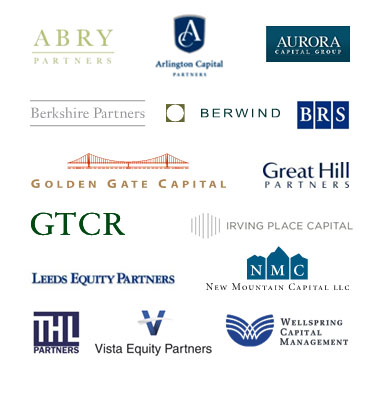While this is specifically real for the first audit, ongoing audit requirements are not insignificant. For a little business with lax monetary controls, the requirements mentioned above can be daunting. An unskilled CFO may do everything they can to adhere to the requirements, however it might not suffice – million investors state. Private equity companies won’t think twice to generate more experienced financial specialists who can not only comply with these reporting requirements however assist ensure that the portfolio company provides the expected internal rate of return.
Not just that, however the specific should have the ability to execute the company’s development strategy, consisting of mergers and acquisitions, and fit well within the culture of the business. As you can think, it requires a skilled individual to bridge the gap between a CEO/founder and the demands of their new private equity partner – tysdal lone tree.
It is simple for emotions to take control of as business executives ponder how that capital will take their services to the next level. That said, taking outdoors capital especially capital from private equity firms isn’t easy. There are certain reporting and compliance requirements that key executives may not anticipate – grant carter obtained. Ultimately, when taking private equity capital, “What got you here won’t get you there,” as executive coach Marshall Goldsmith would state.
And if the existing management can not do so, private equity companies will find someone who can. Founders and executives should face this reality before taking on private equity funding (invested $ million). Setting appropriate expectations can prevent some nasty surprises in the future.
So, you want to work in private equity. You have actually worked difficult to land an interview with your ideal private equity firm. Soon enough, you’ll be able to fly to your private island by yourself private jet. Just one issue. You’re having a hard time to come up with a compelling interview answer to “why private equity?” Worry not.

But prior to you can address this concern properly, you need to initially comprehend the concept behind this question. So let’s discuss the significance of “why private equity” and why recruiters desire to ask it (tens millions dollars). Here’s the short answer: If you can’t get this concern right, you will not get the task.
What Private Equity Firms Look For?
Once your response passes the minimum threshold, there’s no need to overdo it because Some prospects, especially those from the traditional investment banking and speaking with background, spend way excessive time on this question. Time that could’ve been better invested preparing for offer conversations. After all, their compelling story for “why investment banking” got them the IBD deal in the first place.

In reality, we have actually seen IBD uses offered since some candidate has a very engaging “why financial investment banking” answer. That’s not truly the case with private equity interviews. You will never ever get an offer entirely due to the fact that you have a killer reason for why you want the task. How can we be so sure?Simply since that’s not how the private equity people run. athletes sports agencies.
Not charity. Nobody is going to hire you even if you have the world’s most compelling or unique factor to do the task. They’ll just employ you if they believe hiring you will In other words, they’ll employ you if they think you’ll assist them earn money. Do you have a fantastic investor mindset that can help them determine successful opportunities? Are you well polished enough to coordinate amongst banks, attorneys and accounting professionals? Are you a good modeler who can assist them produce error-free monetary models to facilitate their analysis?You will not get the offer because you worked difficult to get to where you are.
See the difference?These are simply some examples of an Associate’s value-add. PE firms wish to hire people who will add the most value to their group. Private equity interviewers are not asking this question so they can employ whoever has the very best factor. Rather the opposite. This is an easy way to identify the candidates they don’t want.
They believe it’s going to be one thing and it turns out to be another. Next thing you know, they recognize they do not wish to get the job done anymore. This adversely impacts the private equity firm’s efficiency and spirits, which is bad for business. Think about Mike (fraud racketeering conspiracy). Mike is an overworked banker wishing to operate in PE so he does not need to make profiles or decks anymore.
One month in, profiles and lengthy discussions on CIMs is all that Mike has actually done. What do you think happens to Mike’s inspiration? He slowly end up being annoyed with the work and stops taking efforts. Productivity decreases all because the job interviewer didn’t detect that the task isn’t what he had in mind. securities exchange commissio.
Investment Banking Vs. Private Equity – Wall Street Prep

Particular funds can have their own timelines, investment objectives, and management approaches that separate them from other funds held within the same, overarching management firm. Effective private equity companies will raise lots of funds over their lifetime, and as companies grow in size and complexity, their funds can grow in frequency, scale and even uniqueness. For more information about fund managers and - check out the videos and -.
Prior to establishing Freedom Factory, Tyler Tysdal handled a growth equity fund in association with a number of stars in sports and entertainment. Portfolio company Leesa.com grew rapidly to over $100 million in incomes and has a visionary social mission to “end bedlessness” by contributing one mattress for each 10 sold, with over 35,000 donations now made. Some other portfolio business were in the industries of white wine importing, specialty financing and software-as-services digital signage. In parallel to handling properties for companies, Tyler Tysdal was managing private equity in real estate. He has had a variety of successful private equity investments and a number of exits in trainee real estate, multi-unit real estate, and hotels in Manhattan and Seattle.
Associates quitting mid-way through their PE program is very disruptive to the groups. This takes place pretty often. Or Sarah. Sarah is a management specialist who can’t wait to work in PE so she doesn’t have to take a trip anymore. Two months in, her private equity firm sends her to camp out of Rancho Cucamonga for a month to help a portfolio business’s FP&A team with its accounts payable and receivable ability.
To avoid these scenarios, private equity job interviewers ask you “why private equity” to ensure you wish to do it for the ideal reason. This one is basic. Some candidates like to enter into a whole story about their financing spark and journey that led them to private equity. They must do that just in the start of the interviews where the job interviewers ask them to walk through their resume.

3-5 sentences gets the task done. It examines the box. It answers the concern and the recruiter wishes to proceed. Going for an extended response here is not a wise move. You risk losing the recruiter’s interest by being verbose. Worse, there’s no upside rewards that come with this risk.
So you only have drawback danger, but no benefit benefit. If the job interviewer wants to penetrate further on this subject, he’ll ask follow up questions. When he does, do not hesitate to enter into your story-telling mode. You can offer him that story about how you ran a small company when you were 8 years old and how it motivated you to be the new.Some factors that you can utilize to respond to “why private equity” are noted below.
You delight in discovering organisations and what makes them fantastic. You wish to establish portfolio operations skillset in addition to monetary analysis, which sets you up well for a career in investing. You desire to be more associated with the due diligence process beyond just financial modeling since you’ll learn all aspects of the business.
PE has actually shown to be the investment design that provides the most constant returns over the long-run. I wish to work in private equity because I actually like the opportunity to discover all elements of business beyond simply the P&L. And coming from a financial investment banking background, I think the capability to work carefully with portfolio business will boost my understanding of services, which will set me up extremely well for a career in investing.







